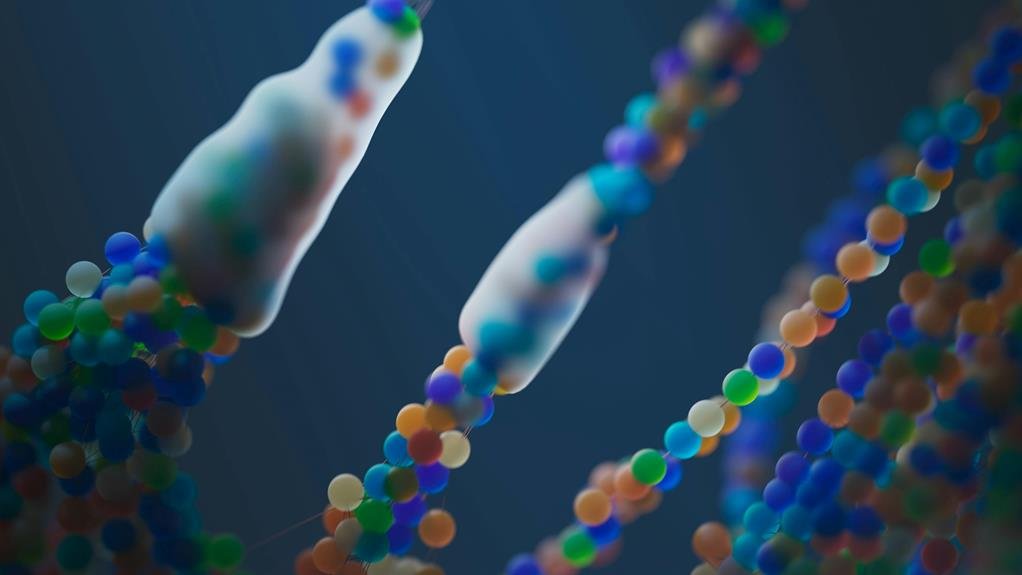
When it comes to shedding those extra pounds, understanding the scientific connection between protein and weight loss is key. You might be surprised to learn how protein influences not just your metabolism but also your body's ability to burn fat efficiently. The role of protein goes beyond just being a source of energy; it can significantly impact your weight loss journey in ways you might not have considered. Stay tuned to uncover the intricate relationship between protein intake and achieving your weight loss goals.
Protein's Impact on Metabolism
Protein boosts metabolism by increasing the thermic effect of food. This means that your body burns more calories to digest and process protein compared to fats or carbohydrates. By including protein in your meals, you can help your body burn more calories throughout the day. This boost in metabolism can support your weight loss goals by creating a calorie deficit.
When you consume protein-rich foods, your body works harder to break down and absorb the nutrients. This process is known as the thermic effect of food, and protein has a higher thermic effect compared to fats and carbs. As a result, incorporating protein into your diet can help you feel fuller for longer periods, reducing the chances of overeating and aiding in weight management.
To make the most of protein's impact on your metabolism, aim to include a good source of protein in each meal. Foods like lean meats, fish, eggs, dairy products, legumes, and nuts are all excellent choices to boost your protein intake and support your weight loss journey.
Role of Protein in Fat Loss
Boost your fat loss efforts by understanding the crucial role that protein plays in your weight management journey. Protein is essential for fat loss because it helps preserve lean muscle mass while promoting the breakdown of stored fat for energy. When you consume an adequate amount of protein, your body is better equipped to maintain muscle mass during weight loss, which is important for keeping your metabolism high and burning more calories throughout the day.
Additionally, protein has a higher thermic effect compared to carbohydrates and fats, meaning that your body expends more energy digesting and metabolizing protein. This can slightly boost your metabolism and increase the number of calories you burn, supporting your fat loss goals. Including protein-rich foods in your meals and snacks can also help you feel fuller for longer periods, reducing the likelihood of overeating and aiding in calorie control.
Protein's Effect on Appetite Control
Understanding how protein influences your appetite can be key in managing your weight effectively. Protein has been shown to be the most satiating macronutrient, meaning it can help you feel fuller for longer periods. When you consume protein-rich foods, they trigger the release of hormones that signal fullness to your brain, reducing the urge to eat more. By including adequate protein in your meals and snacks, you can potentially prevent overeating and better control your calorie intake.
Research suggests that a high-protein diet may lead to a decrease in overall calorie consumption, which can be beneficial for weight loss. Protein can also help stabilize your blood sugar levels, preventing sudden spikes and crashes that can trigger hunger and cravings. Including protein in each meal can help you maintain a more stable appetite throughout the day, making it easier to stick to your weight loss goals.
Next, we'll delve into how protein can spare muscle mass during weight loss.
Protein's Muscle-Sparing Benefits
To maintain muscle mass during weight loss, ensuring you consume sufficient protein is vital. Protein has muscle-sparing benefits that can help prevent muscle breakdown when you're in a calorie deficit. When you lose weight, your body often breaks down both fat and muscle for energy. By consuming an adequate amount of protein, you provide your muscles with the necessary building blocks to repair and maintain themselves. This can help preserve lean muscle mass while promoting fat loss.
Research has shown that a high-protein diet can help retain muscle mass during weight loss compared to diets lower in protein. Protein also has a high thermic effect, meaning your body burns more calories digesting and metabolizing protein than it does for fats or carbohydrates. This can further support your weight loss efforts while preserving muscle tissue.
Incorporating protein-rich foods such as lean meats, poultry, fish, eggs, dairy, legumes, and tofu into your meals can help you reach your weight loss goals while maintaining muscle mass. Remember, protein isn't just for bodybuilders; it's a crucial nutrient for anyone looking to lose weight effectively.




